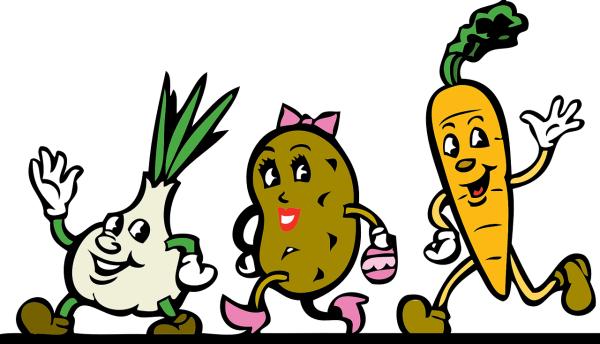
The research began with these questions
- On average, how many heaped tablespoons of salad or raw vegetables would you eat per day? (including lettuce, tomato in sandwiches)?
- On average, how many heaped tablespoons of cooked vegetables would you eat per day? (do not include potatoes)? [1]
While there is general agreement among nutritional scientists that vegetables are “good for you,” they hoped to tease out the cardiovascular benefits of raw versus cooked vegetables where studies are inconsistent – “unsettled” science.
The study group were participants in the UK Biobank, a data source for many longitudinal studies. 400,000 “participants,” 90+% White ethnicity, mean age 56.1, slightly more than half women, and a mean BMI of 27.3 – just on the edge of “overweight.” There were significant limitations for the baseline data beginning with measuring vegetable consumption in tablespoons (who does that?), and the “self-reported” high level of physical activity for 41.3%. More importantly, the Achilles heel of all these types of studies, the dietary information was captured only once at enrollment in the Biobank. But the researchers did note
“Previous analyses have demonstrated high repeatability and validity of vegetable consumption measured in this baseline dietary questionnaire: repeatability over a 4-year period is 82% for cooked vegetables 5 and 72% for raw vegetables, with high agreement also observed when compared with 24-hour dietary assessment.” [2]
The Results
The mean daily intake of vegetables was five tablespoons, roughly evenly divided into raw and cooked. I tried to identify a comparator for that amount. Most studies of vegetable density report their nutritional density (kale and green leafy vegetables win) or the overall weight, which are Guinness Record champions. 4 tablespoons of carrots are roughly an ounce, same for a cucumber. A cursory search suggests we take in 3-4 pounds of food daily, so an ounce or so of vegetables is 2% or less than our total daily diet.
- During the 12+ years of follow-up, eating five or more tablespoons of vegetables a day, compared with none, lowers your risk of having a heart attack by 10%. This was not true when considering cooked vegetables, nor did it hold for reducing the risk of stroke.
- During the same period, “consuming two or more heaped tablespoons/day of total vegetables” led to a 17% decline in cardiovascular deaths. Again, only for raw vegetables.
Why raw? Why not all vegetables?
The researchers begin with the predictable explanations
- Vegetables are less calorie dense, replacing foods high in fat, salt, or high glycemic loads
- Vegetables are more micronutrients – vitamins, polyphenols and anti-oxidants
- Cooked vegetables differ from those eaten raw
- Cooking processes alter the bioavailability of nutrients
- Seasonings and oil used in cooking can increase fats and salts, “known risk factors” for cardiovascular disease.
But here is where the study differs and why I bring it to your attention. Vegetable consumption comes with other behaviors. Those participants with higher vegetable intake were
“more likely to be women, better educated, and residents of an affluent area, with lower mean BMI and higher levels of physical activity, and less likely to be smokers.”
The gender, education, income, lower weight, higher physical activity, and lack of smoking were all in the vernacular confounders. When the researchers adjusted their calculations to consider these confounders, the reduction in cardiovascular risk dropped dramatically. In their words,
“The present study found the observed associations were mainly accounted for by socioeconomic status and lifestyle factors.”
At last, the smoking gun, clearly delineated. Our health is not simply choosing a carrot over cake or a kale salad over a baked potato. As we and others have claimed, it is a host of factors. Some of them you can control, like diet and exercise; others are a bit tougher, the economic circumstances you are born into, your ability, and desire for higher education. But there is no magic nutritional bullet.
[1] I am not sure why the potato was not included; perhaps this is another case of potato bias, as some nutritionists feel that a potato is not a vegetable.
[2] Since the study lasted 12 years, based on that declining reliability, the repeatability of those measurements would be less than 50%
Source: Raw and Cooked Vegetable Consumption and Risk of Cardiovascular Disease: a Study of 400,000 Adults in UK Biobank Frontiers in Nutrition DOI: 10.3389/fnut.2022.831470



